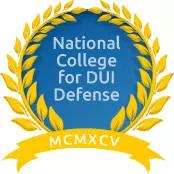Facing a DWI charge in Texas is stressful. You can never be sure of the outcome, so you must know the law for your protection. This statement is especially true when it comes to probable cause versus reasonable suspicion. These are two criteria utilized by police officers when they make an arrest or detain a subject for breaking Texas DWI laws. This entry will explain these terms, as well as why it’s crucial to know them in the context of DWI in Texas.
What Is Reasonable Suspicion in a Texas DWI?
The Constitution does not mention reasonable suspicion, though it does describe probable cause. Instead, reasonable suspicion in Texas is a court standard. This standard, under the Texas penal code, authorizes police officers to detain a subject if they have specific and articulable facts of a crime, such as observing driving behaviors consistent with an intoxicated motorist.
 Should an investigation lead to the determination that criminal activity did occur, or that the driver might be intoxicated, the officer can then administer a field sobriety test or a breath test. When the investigation is taking place during a traffic stop, the law permits the officer to question the driver about their behavior, without having an attorney present. This examination either confirms the suspicion of the officer that the driver is intoxicated or proves that there is nothing wrong.
Should an investigation lead to the determination that criminal activity did occur, or that the driver might be intoxicated, the officer can then administer a field sobriety test or a breath test. When the investigation is taking place during a traffic stop, the law permits the officer to question the driver about their behavior, without having an attorney present. This examination either confirms the suspicion of the officer that the driver is intoxicated or proves that there is nothing wrong.
For the most part, for an officer to prove he or she had reasonable suspicion to believe that a crime took place, the driver would not need to have actually committed a traffic offense. Many times, reasonable suspicion could arise when an officer comes across a parked vehicle, and the driver is asleep at the wheel. Another common situation is when an officer speaks to a driver involved in an accident and smells alcohol on their breath.
What Is Probable Cause in a Texas DWI?
Texas law and the Fourth Amendment of the United States Constitution protects you from unlawful search and seizure. This fact means that a police officer in Texas cannot administer a blood test, breath test, search your vehicle, or make an arrest for DWI without having probable cause.
Should the police officer not be able to show probable cause for any of these areas of a DWI traffic stop, the charge could be thrown out by a judge. Only if there is a probable cause can officers infringe upon your rights. An officer has probable cause if he witnesses you driving recklessly, hitting another vehicle, speeding, running red lights, or breaking any other type of law that would lead to a traffic stop.
 Arrested for Suspicion of DWI? Call an Attorney
Arrested for Suspicion of DWI? Call an Attorney
If you or a loved one is ever arrested for suspicion of DWI in Texas, you need to protect your rights as soon as possible. An experienced criminal defense attorney knows the laws of the state, and they will be able to investigate the traffic stop that led to your arrest. Call the office of Flood & Associates at 713-224-5529 to schedule a consultation today, and enlist a team that will fight relentlessly for your innocence.









